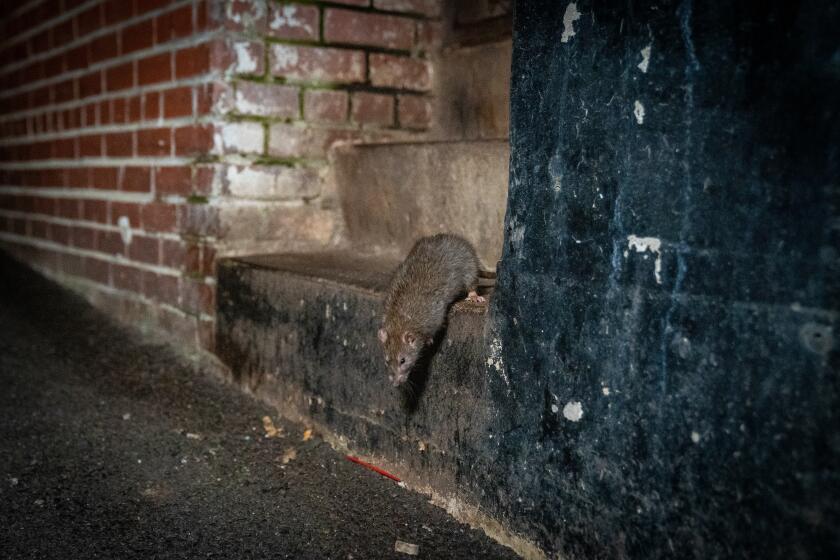Bee Mystery
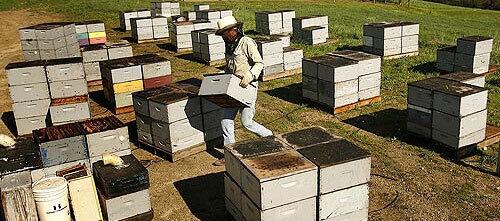
Beekeeper Dave Hackenberg of West Milton, Pa., moves hives into an apple orchard for the night. Hackenberg, who sounded one of the earliest alarms, figures he lost more than $460,000 this winter in bees, honey and missed pollination opportunities. If that happens again, were out of business, he says. (Carolyn Cole / LAT)
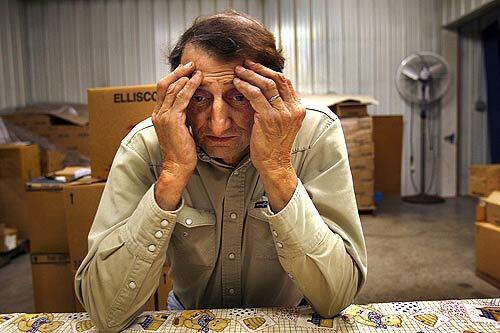
Dave Hackenberg lost most of his bees over the winter. Weve never experienced bees going off and leaving brood behind, he says. It was like a mother going off and leaving her kids. (Carolyn Cole / LAT)
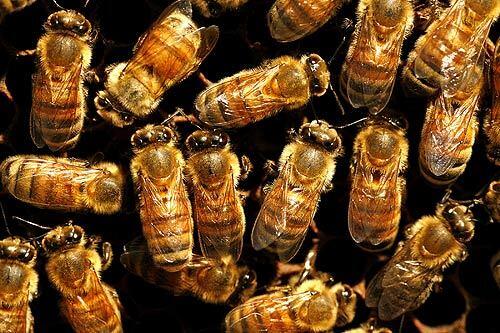
Bees, which are required to pollinate a third of the nations food crops, including almonds, cherries, blueberries, pears, strawberries and pumpkins, have been disappearing around the country. (Carolyn Cole / LAT)
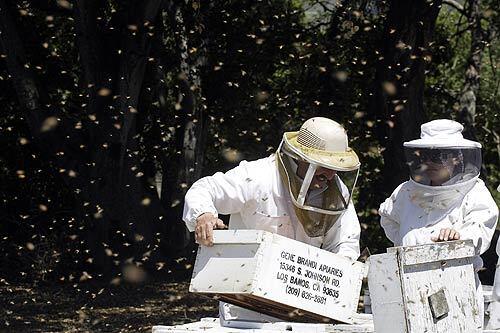
Veteran beekeepers Gene and Christine Brandi of Los Banos, Calif., check on hives near Watsonville. They are rebuilding after losing 40% of their bees, but they know plenty of other keepers who have folded. (Bryan Chan / LAT)
Advertisement
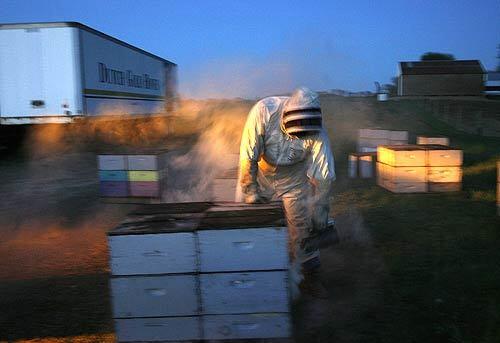
A worker at the Hackenberg apiary in Pennsylvania blows smoke around hives to help calm the bees before they are transported. (Carolyn Cole / LAT)
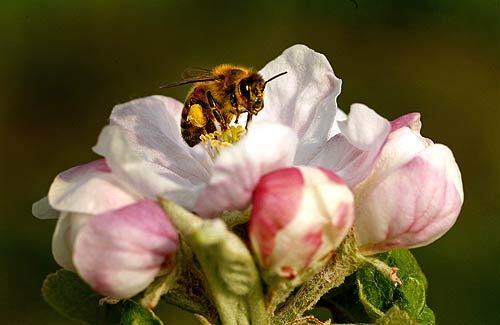
Scientists believe that whatever is harming the bees is biological. If it is a pathogen or a parasite, bees are poorly equipped to deal with it, one entomologist says, because the honeybee genome has only half as many genes to detoxify poisons and fight off infections as do other insects. (Carolyn Cole / LAT)



